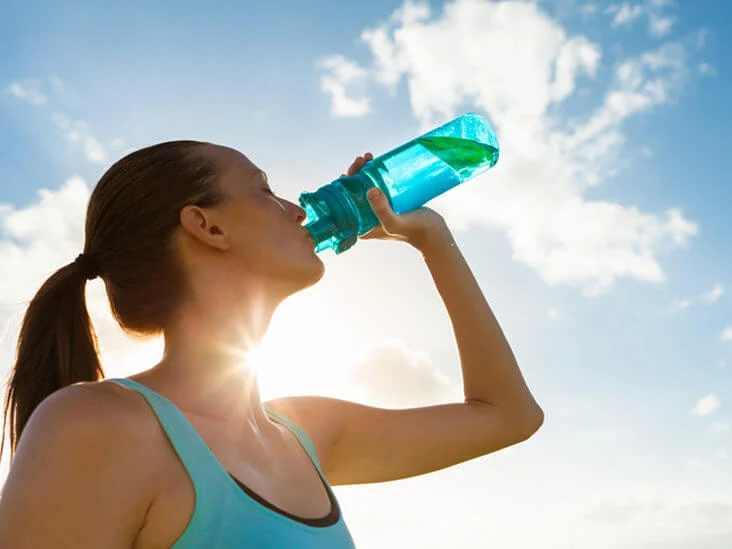What Is Overhydration?
What Happens When You Drink Too Much Water? If you drink too much water to stay hydrated, you can get hyponatremia. In this illness, the blood becomes diluted as a result of decreased blood levels of salt. Decreased blood levels of salt can cause nausea, vomiting, headache, confusion, seizures, and, in severe cases, coma or death, especially if you are extremely active and do not properly replace electrolytes . Overhydration is very rare, too much water intake can hurt your heart, muscles, and nerves.
Problems caused due to excessive consumption of water
Hyponatremia:
Excessive water consumption causes the level of sodium in the blood to decrease, which is dangerous.
Symptoms:
The symptoms are mild such as nausea, vomiting, and swelling, whereas serious symptoms may be confusion, seizures and coma.
Risk of athletes:
Hyponatremia is particularly common among sportspeople who consume massive amounts of water during extended periods of physical exertion and do not replenish their body’s electrolytes adequately.
Listen to your body, let thirst be your guide, and drink water only when thirsty—not because you are simply hydrated.
Hyponatremia can be brought about by excessive intake of water, which can also dilute the concentration of blood salt and interfere with the body’s electrolyte balance. Hyponatremia’s symptoms include headache, nausea, muscle cramps, weakness, and irritability.

How much water do you need in a day?
Institute of Medicine has set guidelines for drinking water. A healthy person should drink about 9 to 13 cups of water daily.
4 side effects of excessive consumption of water
- Hyponatremia
Excessive water can lower the level of sodium in the body. This is a process called hyponatremia. People who suffer from heart and kidney problems are prone to hyponatremia.
- Muscle cramps
A BMJ study reports that too much water consumption dilutes the sodium and other electrolytes in the blood, thereby lowering the body’s sodium concentration. Physical problems like muscle cramps may arise as a result of low sodium in the body.
- Frequent urination
Increased water intake leads to more peeing. Because whenever you drink more water, kidneys work day and night. Except for this, it has been indicated in research that increased peeing stresses kidneys further.
ALSO READ: Early morning workouts







